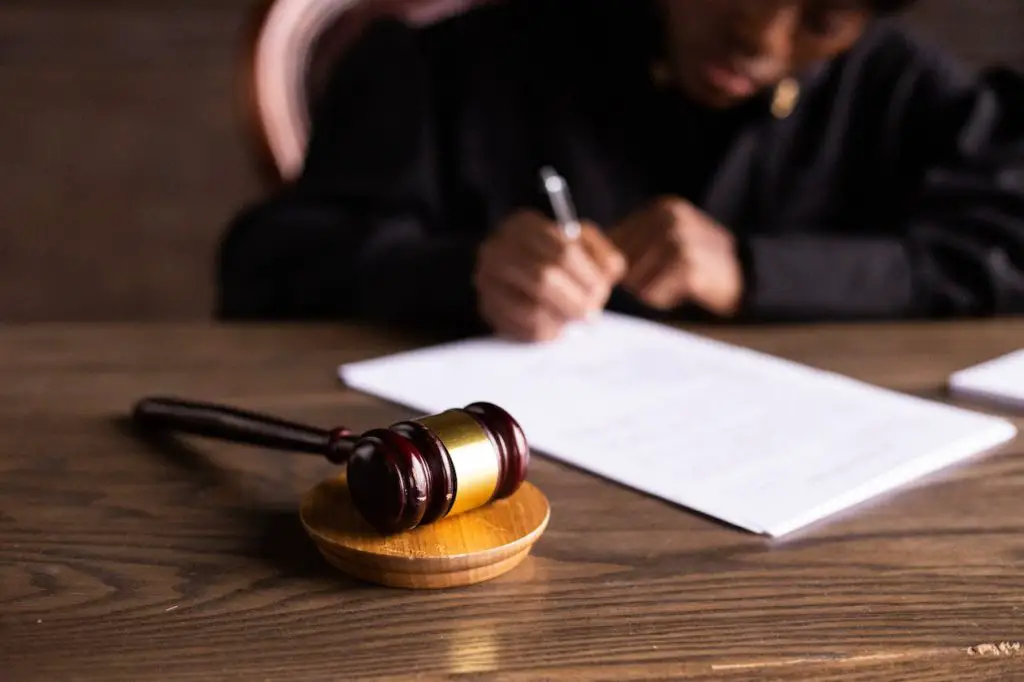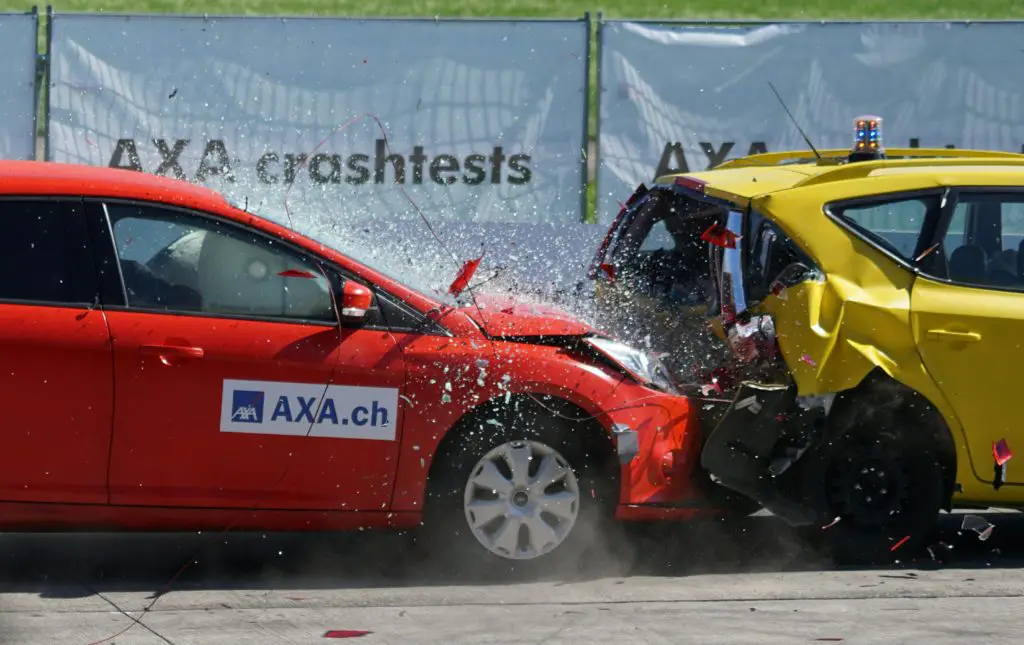Imagine your average day at work gets interrupted as authorities pursue a criminal suspect, who they later apprehend by crashing his vehicle. Unfortunately, the police destroy your property in the process; in this case, who pays the damages?
This scenario was the reality of an innocent 3rd party whose boom lift received damage as law enforcement apprehended the runaway suspect. From the video, the damage happened because two police vehicles cornered the offender, resulting in them hitting the occupied boom lift.
Who’s Liable for Damage?
The viral video raised much concern as people wondered who was paying for the man’s damaged equipment: himself or the police department. Fortunately, Tiktok attorney Ugo Lord answers this question by reacting to the popular video.
Dr. Lord explains, saying, “Whenever the police engage in a high-speed pursuit, there’s always the possibility that an emergency vehicle will crash into an innocent third party.” “If that happened, ladies and gentlemen…” he continues,” the police are still not liable.”
He further explains that this lack of liability is due to a concept in the law known as Qualified Immunity. Therefore, since these officers were legally pursuing an offender, the police department won’t pay the damages.
This conclusion by Ugo Lord may seem unfair and depressing; fortunately, he reassured his viewers that compensation is still possible. He explains, “…you can still file a claim with these police departments because most have some sort of insurance to help pay these bills.”
What is Qualified Immunity?

Attorney Ugo Lord mentions Qualified Immunity as the primary legal concept that makes law enforcement not liable for damaging your property. So what’s Qualified Immunity?
Qualified immunity is a legal principle that protects government officials, such as police officers, from lawsuits unless they violate established rights. It was created by the U.S. Supreme Court in 1967 to protect officers from frivolous lawsuits and to allow them some leeway in making decisions in unclear situations.
However, the doctrine has been criticized for allowing police to escape liability for excessive or deadly force and for denying victims their constitutional rights.
Determining Fault for Property Damage During a Police Chase
When property damage occurs during a police chase, the liability depends on who caused the damage and the circumstances. Depending on the situation, you may receive compensation to cover the damage.
Some possible scenarios are:
- If the suspect caused the damage, you may sue them or file a claim with their insurance company if they have one.
- If the suspect caused the damage with a stolen vehicle, you cannot file a claim with their insurance company. However, you may use your uninsured motorist coverage if you have it.
- If the damaged vehicle belongs to your employer, you may be able to file a claim with your employer’s insurance company.
- If the police caused the damage, you may have difficulty holding them liable unless you prove that they acted negligently or recklessly. This may require evidence of the police’s pursuit policy and the officer’s conduct during the chase.
Conclusion
Getting compensation for property damage during a police chase is tricky since they have qualified immunity. One YouTube user commented on Ugo Lord’s video, saying, “I feel low whoever the police are chasing should be liable.”
While this reasoning is valid l, Ugo Lord replied, “Yes, the fleeing suspect will always be liable. However, it’s highly unlikely that they have any money…and their insurance company would not cover the damages…”.

